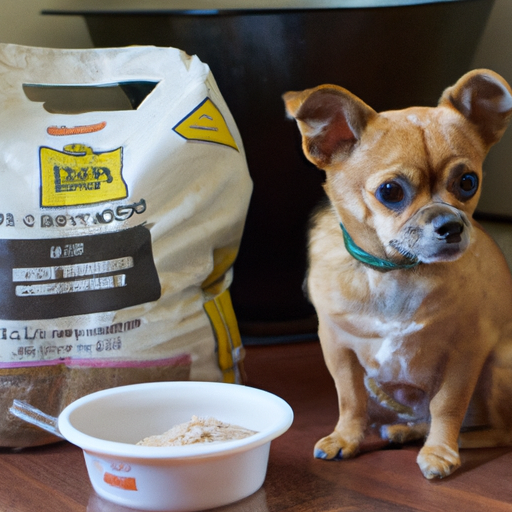As the caregiver of a small canine companion, it’s only natural that you want to ensure they’re getting the right amount of nutrition. But just how much food should a small dog eat? There’s no one-size-fits-all answer to this question. Various factors such as age, activity level, and overall health can greatly impact a pup’s dietary needs.
Understanding Your Dog’s Nutritional Needs
When it comes to the amount of food your small dog should eat, it’s important to understand how their nutritional needs differ from larger breeds.
- Caloric needs: Small breeds tend to have a faster metabolism than larger dogs. This means they often require more calories per pound of body weight.
- Protein: Protein is a critical part of your dog’s diet, helping to maintain healthy muscles and tissue.
- Fats: Fats provide the most concentrated source of energy for dogs, and they also play a key role in supporting skin and coat health.
Here’s a general guide to how much of these nutrients small dogs typically need:
| Nutrient | Amount per pound of body weight |
|---|---|
| Calories | 40-55 |
| Protein | 25-30% of total diet |
| Fats | 15-30% of total diet |
Factors That Influence Food Portions
Several factors can influence how much your small dog should eat. These include:
- Age: Puppies generally need more food than adults due to their fast growth rate.
- Activity level: Active dogs require more calories to fuel their energy needs.
- Health status: Certain health conditions can affect a dog’s appetite and dietary needs.
Feeding Guidelines for Small Dogs
When feeding your small dog, it’s crucial to:
- Use a measuring cup to ensure accurate portions.
- Split their daily food intake into multiple small meals.
- Monitor their weight regularly and adjust portions as needed.
Common Mistakes to Avoid
Avoid these common mistakes when feeding your small dog:
- Overfeeding: Small dogs can easily become overweight, which can lead to health problems.
- Feeding table scraps: These can disrupt your dog’s balanced diet and lead to weight gain.
- Ignoring nutritional needs: Small dogs have specific nutritional needs that must be met for their health and wellbeing.
FAQ
Q: Can I feed my small dog the same amount of food as my larger dog?
A: No, small dogs have different caloric needs and should be fed accordingly.
Q: How often should I feed my small dog?
A: It’s best to feed small dogs multiple small meals throughout the day.
Q: What if my small dog is overweight?
A: If your dog is overweight, consult with your vet about adjusting their diet and increasing their activity level.
Q: Can I feed my small dog human food?
A: While some human foods are safe for dogs, many can be harmful. Always check with your vet before introducing new foods into your dog’s diet.
Remember, every dog is unique. Always consult with your vet to determine the best diet for your small furry friend.



